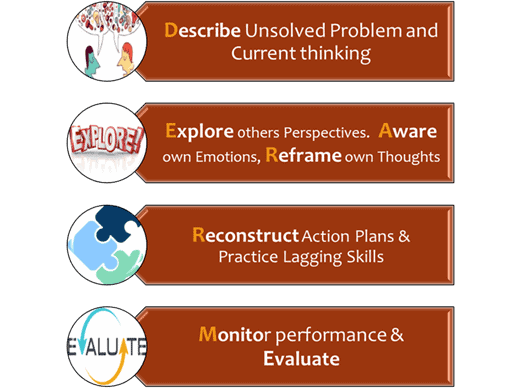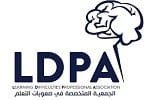
The Learning Difficulties Professional Association Coaching Academy provides ICF Accredited Coach Training Programs. We also provide the platform to practice coaching and stay up to date with gold standards of International Coaching Federation.
ADHD Coaching Certified Training Academy - ICF Accredited Coach Training Program
Program Description
The Learning Difficulties Professional Association provides ADHD Training Courses accredited by the International Coach Federation (ICF).
”These courses provide you with a mixture of ADHD specific skills and life coaching skills needed to successfully coach younger clients, teens, university students, adults, and client family. They are designed to align with ICF Core Competencies and incorporate ADHD Coaching Competencies. The ICF Code of Ethics will be strictly followed throughout the duration of this course. The goal of this learning experience is to provide the participant, with information, strategies and suggestions for successful coaching in the very specialized niche of ADHD. Upon successful completion of these courses, the participants should expect to have an increased level of confidence and skill in coaching Children teens and college students with ADHD.
You may join one of these courses to gain knowledge and information about the coaching approach, or you may pursue a new career path, fulfill the courses requirements and be an ICF certified Coach
One-on-One Transformative ADHD Coaching Sessions
One-on-one coaching sessions with certified LDPA ADHD coaches which will support the coachee by exploring hidden personal strengths and abilities, using 'DHS: D.E.C.I S.I.ON- D.E.A.R 2 M.E' Coaching Model
ADHD Coaching
What is ADHD?
ADHD is a real medical disorder which has been recognized by the National Institute of Health, the US. Department of education and the American Psychiatric Association in the Diagnostic and Statistical Manual for Mental Disorders- DSM. It is a neuro biological disorder accompanied with a developmental delay (3 to 6 years). However, there is no correlation between IQ and AD/HD. Studies have shown that even the extremely high IQ children and adults can suffer impairments of AD/HD.
ADHD brings an increased risk of academic failure, frustration and dropping out of school and college. Many problems related to this disorder are not visible. On top of the obvious behavior that we noticed in colleges or at home. ADD/ADHD is likely to coexist with other conditions as anxiety or depression or conduct disorder. AD/HD Students have weak executive functions, an impaired sense of time as well 56% of them may have sleep disturbance.
ADHD brings an increased risk of academic failure, frustration and dropping out of school and college. Many problems related to this disorder are not visible. On top of the obvious behavior that we noticed in colleges or at home. ADD/ADHD is likely to coexist with other conditions as anxiety or depression or conduct disorder. AD/HD Students have weak executive functions, an impaired sense of time as well 56% of them may have sleep disturbance.
What is ADHD Coaching?
ADHD Coaching is a specialized type of “life coaching” which addresses the most challenging aspects that ADHD can bring like:
- Setting goals, Scheduling, Planning
- Prioritizing, Focusing, Persisting at tasks, Self-management
- Confidence building
How can an ADHD coach help you?
According to the Attention Deficit Disorder Association (ADDA) Subcommittee on ADHD Coaching:
“ADHD coaches support their clients in developing a comprehensive understanding of both the nature of ADHD and the impact of ADHD on their client’s quality of life. In addition, ADHD coaches work with clients to create structures, support, skills and strategies. Coaching assists clients with ADHD to stay focused on their goals, face obstacles, address core ADHD-related issues like time management, organization, and self-esteem, gain clarity and function more effectively.”
The Effects of Executive Functions Deficit on Teens and College Students\' Success
The evidence has highlighted structural differences between AD/HD and non – AD/HD children. The majority of this evidence points to a region known as the Frontal Lobe Area suggesting this area as involved in AD/HD children ability to pay attention, poor working memory, poor organizations skills and inability to inhibit emotions OR what is called the EXECUTIVE FUNCTIONS SKILLS.
Working Memory Deficit affects AD/HD Students’ ability to recall the instructions given in class, retrieving words or facts, summarizing and retelling a story, answering questions, or recalling mathematical facts needed to solve mathematical problems.
Poor Memory Skills may impair AD/HD students\’ processing speed. They will read and write slowly which lead to processing materials slowly, have trouble completing work on time and produce less written work. That is why; they often need extended time on schoolwork and on tests.
Poor Organizations skills: For students with AD/HD the ability to organize, prioritize, and manage time is impaired by neurological deficiencies, which make it hard for them to stay on top of college assignments. Punishment will not change disorganized behaviors.
People with ADHD try really hard to function, but often feel misunderstood and rejected. By learning about ADHD, you will gain a better understanding of the individual and see the behavior from an informed perspective.


The Coaching Process
The program starts with a (free of charge) consultation call through which the whole coaching process, procedures, expectations and rules are shared.
If you are a parent or guardian applying on behalf of a student, please be aware that we require
the student\’s contact information to investigate his “coachability”. Students need to decide for themselves about coaching before proceeding with the application, as coaching revolves around their goals, not the parents’ goals.
The Intake session
During this initial session, two hours are spent to create the Inspirational Coaching Plan based on the clients’ goals, what they would like to accomplish and by when. It is when together we “set the stage” and start finding ways to better manage their challenges and create the lasting change they want.
Weekly meeting
One 40 to 50 minute weekly meeting is set to review the goals, brain storm on the actual reality and define plan of action using the GROW model technique and SMART goals.
Complementary Check-ins
Emails, phone calls or text messages between appointments to monitor clients performance and commitment.
Coaching Results
As a result of coaching, students develop executive functioning and self-determination skills to:
- Recognize strengths and weaknesses,
- Identify patterns of behavior,
- See situations from a different perspective,
- Reflect critically on challenges and achievements,
- Make deliberate and creative choices,
- Take action on goals,
- Create greater balance and fulfillment in their lives,
- Coach themselves
Coaching Limitations
- Not effective for students who have certain active psychiatric disabilities
- Not effective if a student is unable or unwilling to be introspective.
- Not applicable for students below the age of 8
Confidentiality
All conversations between coach and client are confidential. Even though contacting other professionals working with the client (Teacher, Social worker, Psychologist..etc) is invaluable, the coach will not disclose or communicate any information regarding the coaching relationship or coaching sessions to a third party without permission from the client. It is up to the client’s discretion whether he or she wishes to disclose the existence of the coaching relationship to others.
Meet the LDPA - AD/HD Coaches

DR. HUDA SHAABAN
Licensed Educational Psychologist, Professional Certified ADHD Coach, LDPA - Land of Opportunities Clinical Director, Author

ALIA HAROUN SABBAGH
Licensed Clinical Psychologist, Psychotherapist, Couple & Family Therapist, LDPA ADHD Coach

Dr.Fai Nasser Alnajdi
BSc, MD from AGU Kuwaiti Board of Family Medicine MRCGP (INT)

Dr.Eman Fadel Al-aradi
Phd in special education -Master in curriculum & instruction ( special needs) -Certified trainer in special education ( ADHD, SLD) -ADHD Goach/ Life Coach ( LDPA Coaching Acadamey)

Futha Basel Alkhaled
BA in Law from the University of Surrey, UK - LLM in Business Law from the University of Southern California, USA - Currently employed as a Governance & Compliance Officer

Abeer Zein Eldeen
BA in Educational Psychology -Secondary Philosophy Teacher. -Prior Secondary School Principal (4years). -Life Coach /ADHD Coach(LDPA Coaching Academy).

Zeyad Ahmad Khamis Bouarki
BA in English Language and English education from Gulf University of Science and Technology, Kuwait -MA in Linguistics from The University of Essex, UK -English Language Professor at The Public Authority of Applied Education and Training since 2012

Dekrayat Hamid Sanad
Educational Specialist, LDPA ADHD Coach

Hadeel Qasim
ADHD Coach / Life Coach (LDPA Coaching Academy) - BA in Accounting from the University of Jordan - Preschool educational expert and teacher - Writer and researcher in education and family consultations

Fatemah Hamad AlMazyad
BA in English Language an Literature from the American University of Kuwait -Working as a Liberian in a private school

